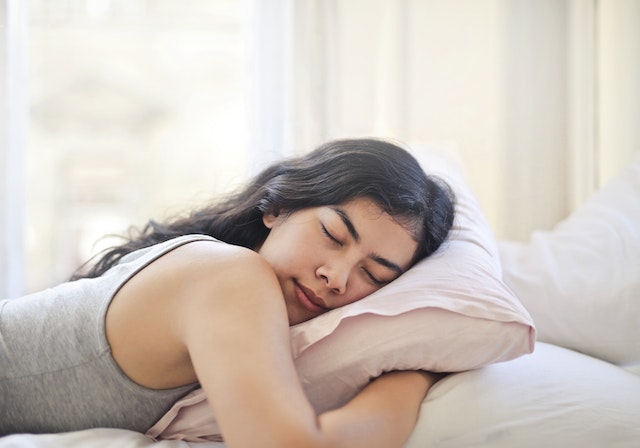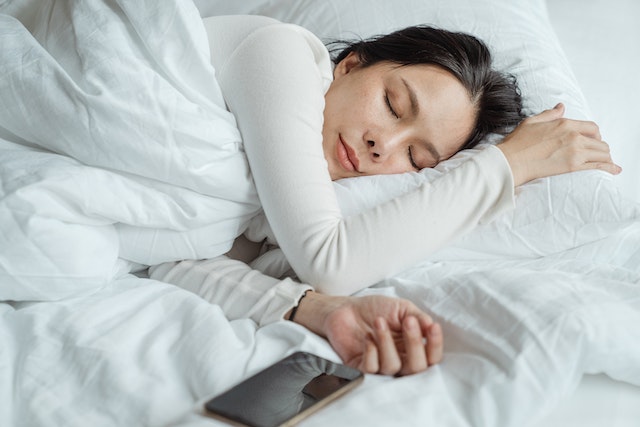
The modern addiction recovery process involves self-care techniques, therapy, and creative and outdoor endeavors. In addition, experts have started paying more attention to the effect good sleep has on the addicted brain. Since sleep disorders are what people on their recovery journey battle most of the time, it has become a necessity to help them establish a proper sleep schedule. This article highlights the importance of sleep during addiction recovery and offers helpful tools. Make sure to stay by and learn how sleep can help you with ongoing recovery or aftercare.
Why sleeping is beneficial for addiction recovery
Nothing influences addiction recovery progress like a good sleep. The reason is that sleep balances brain chemistry and allows the entire body to reset properly. However, falling asleep becomes a problem in cases of severe addictions. That’s exactly what leads to a never-ending addiction circle. For example, those with developed addiction to substances later find it harder to sleep. As a result, they resort to further drug usage to ease (withdrawal) pain or fall asleep. Stimulants make shutting your eyes especially difficult.
The lack of sleep means more stress and imbalanced brain chemistry. It also makes a person prone to chronic frustration. Furthermore, it becomes easier for a person to relapse. When the crisis hits, a person is very likely to go back to substances in order to numb the pain or silence mental chatter. That’s why the importance of sleep during addiction recovery mustn’t be ignored. When regular, uninterrupted sleep becomes part of a recovering individual once more, chances for a relapse are minimized. When people aren’t drowsy, they’re able to make sound decisions.
Ways to help you fall asleep easier
In addition to medical and psychological assistance, it takes some effort on your side to retrain your brain for sleep. Addiction treatment experts at Harmony Ridge Recovery Center emphasize a sleep schedule one must stick to in the initial period of recovery. The longer the brain is exposed to a new routine and proper care, the easier it will be to get your sleep and dream back.
Breathing and meditation
Chances are you’ve probably heard countless times about deep breathing and meditation. The thing is, these simple techniques are quite effective. Meditation doesn’t necessarily mean sitting in a lotus position for hours. Even a 10min focus on your breath before you go to bed can reduce mental chatter and increase oxygen flow to your brain. It’s important to make this a habit to benefit long-term results: better sleep and a calm and focused mind. There are a bunch of breathing techniques you can do on your own. The simplest of them is counting to 10 when breathing in and breathing out. It’s important to remain focused while breathing.

If there’s a spa center near you, go for a relaxing massage at least once a month. Massage helps you release accumulated tension and helps your muscles rejuvenate.
Keep your room tidy
Studies repeatedly show that disrupted sleeping patterns are linked to a messy environment. The brain naturally remains constantly alerted when a mess is all around you. That said, make sure to keep your place as clean and tidy as possible.
Ensure your ongoing rehab takes place in a safe environment
It matters tremendously where you are receiving professional help. Whether you opt for a residential, inpatient, outpatient, or any other rehab program, it’s extremely important to have the right environment ready first. Progress can only happen if the surrounding is calm and serene, with a medical and psychological professional team to assist you. Before you admit yourself to any rehab/treatment center, make sure it’s the right one for you.
Have your day packed with tasks
New or rediscovered hobbies and other activities will definitely be a part of your recovery. If you’re in the middle of the aftercare process, keep in mind that you could make good use of a tight schedule. Have your plan for the week include physical activity or any hobby you enjoy. At the end of the day, you’ll feel tired yet fulfilled.

Workout and eat healthily
Workout in the morning or afternoon is good for health, mood, hormone balance, and, finally – sleep. It’s entirely up to you what kind of workout you’re going to choose – running, jump rope, gym membership, swimming, etc. However, what you must pay attention to is when you are working out. If night workouts help you fall asleep, then go for it. On the other hand, a workout might rather wake you up than put you to sleep. So, determine your best time for exercise and stick to it. Also, don’t hesitate to ask for training advice and thus curate a workout plan.
Hydrate on a regular basis
Hydration can help cure sleep disturbances. When a body is properly hydrated, its optimal temperature is already maintained. On the other hand, dehydration forces the body to maintain the body temperature, which doesn’t let you fall asleep as a result. So, make sure you have a bottle of water with you and set the alarm to remind you to hydrate.
Continue with therapy sessions
Even after your rehab is over, you’ll still have to commit to therapy sessions and do your best to maintain a healthier lifestyle. Your emotional health also plays a big role when it comes to the quality of your sleep. Whatever bothers you is best to share with a trustworthy person or professional. In addition, a trusted psychotherapist can help you stay on track through guidance and special techniques.

Wrap up
Make sure to remind yourself of the importance of sleep during addiction recovery. It’s also a part of your self-care journey as well. When you make a decision to prioritize your sleep, you commit to a stress-free life at the same time. The actions you take towards getting good sleep to leave little to no room for extra stress you certainly don’t need. Thanks to your consistent effort, you’ll have a well-structured life with sufficient time to work, spend your free time, and rest.
–







